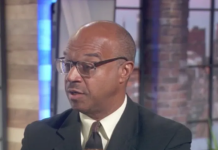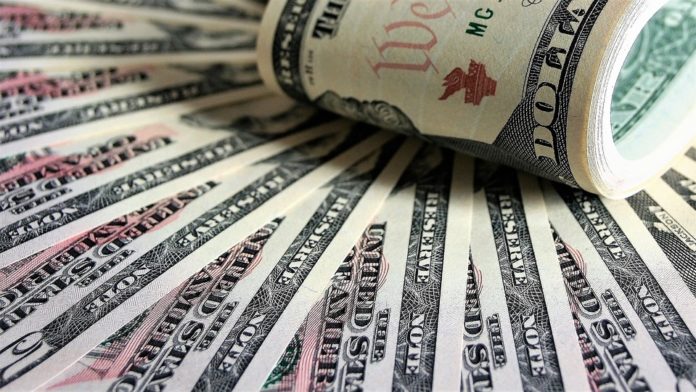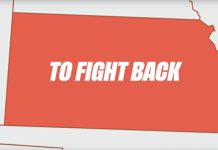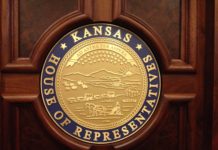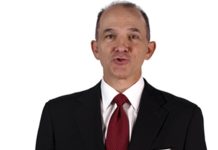Times are tough.
Millions are without jobs.
Businesses are shuttered.
Stock values are plunging.
As the American economy sputters amid the coronavirus pandemic, the political show goes on as candidates delicately raise money in a difficult climate.
In the last month, fundraising efforts — in federal and state races — moved forward as candidates raced to fuel their campaigns for the upcoming election season.
It makes candidates — Republicans and Democrats alike — carefully balance how to solicit money while being sensitive to the difficult times that the coronavirus pandemic presents.
Take 2nd Congressional District hopeful Jake LaTurner, for instance, who shut down raising money in mid-March.
The state treasurer, who is in a primary contest against incumbent Congressman Steve Watkins, decided it wasn’t the best time to ask for money for a political campaign.
“Jake understands that Kansans are dealing with serious health and economic issues right now,” spokeswoman Kara Zeyer said.
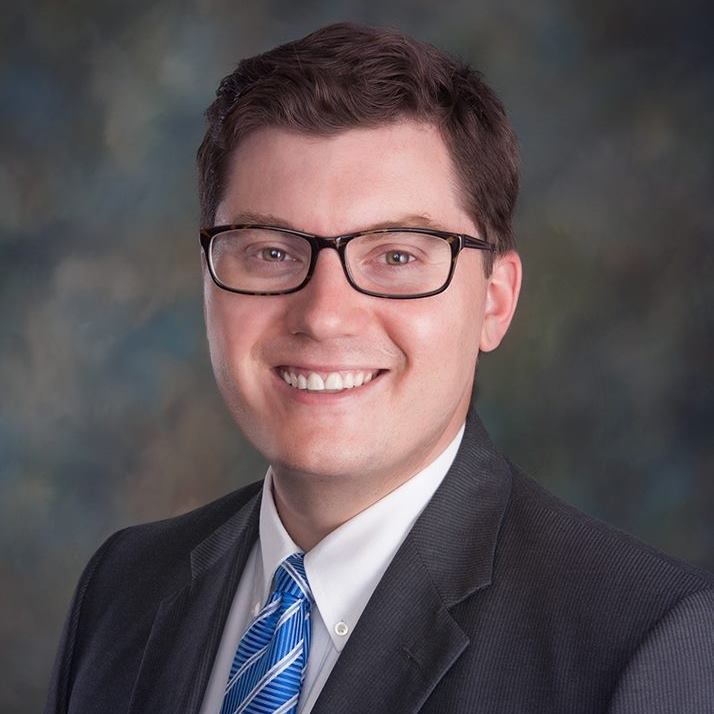
“Over the past several weeks, we have not asked Kansans for anything,” she said. “We are merely doing what most Kansans are doing, trying to do more with less.”
Zeyer said a decision has not been made about when LaTurner will resume fundraising.
LaTurner’s approach reflects what U.S. Sen. Martha McSally did a couple weeks ago when she suspended fundraising for the first two weeks of April to raise money for the Salvation Army.
Democrat Wendy Budetti is running for the state Senate in Olathe. With the exception of a couple email pushes, Budetti said she paused fundraising for about a month.
She faces Republican Sen. Rob Olson, who had $97,000 on hand at the end of last year.
But she started up fundraising again in earnest over the weekend with a virtual fundraiser on Zoom that featured Congresswoman Sharice Davids.
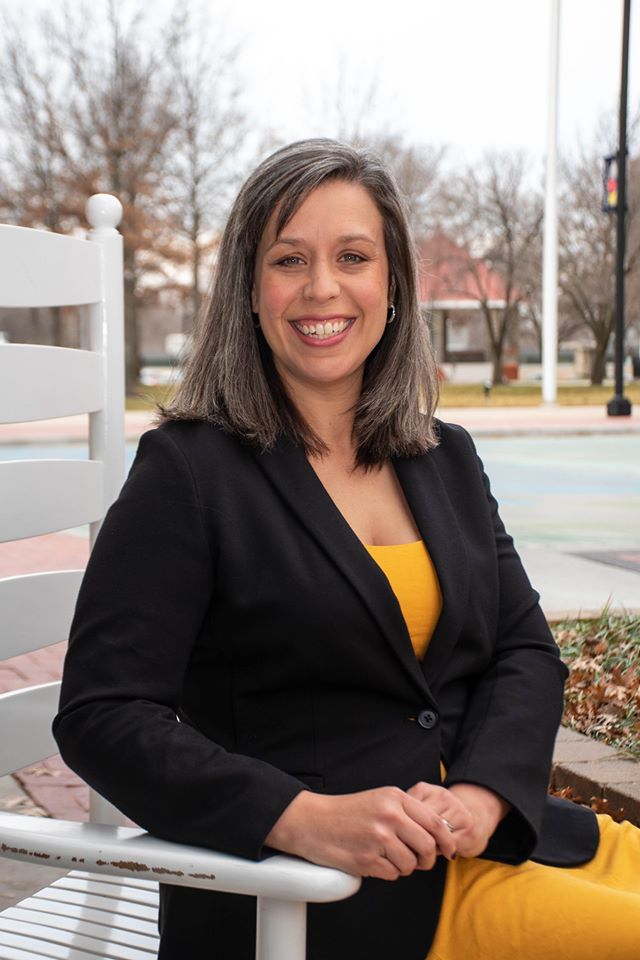
“A lot of people are being furloughed. A lot of people are being laid off,” Budetti said. “It just didn’t feel like the right time to be asking for money. We’re at a point now where I think we’re ready to start making some direct asks again.”
Budetti said her priority in recent weeks has been circulating information about where people can get help or find information during the COVID-19 crisis.
As they’ve courted supporters, candidates have taken different approaches, in addition to fundraising, whether it’s circulating resources about the coronavirus, encouraging support of charities or offering tips about how to avoid the virus.
In some cases, candidates emphasize their backgrounds in health care in their messages to constituents.
They offer help and comfort as they try striking the right tone with voters even as they’re caught in the predicament of raising money at a most difficult time in American history.
Candidates, especially at the local level, are caught in somewhat of a no-win scenario, interviews with candidates, consultants and experts suggest.
With stay-at-home orders in place, candidates can’t go door to door or meet voters in mass, meaning they have to turn to more expensive campaign alternatives such as direct mail, digital platforms or television.
However, money will likely not be flowing as freely, something that may be seen as early as Wednesday, when candidates for Congress and the U.S. Senate file their campaign finance reports for the first quarter of 2020.

“A lot of people that might in ordinary times be willing to give money might not now because they’re uncertain about their own financial situation,” said Wichita State University political scientist Neal Allen.
Republican political consultant Pat Leopold said conversations he’s had nationally indicate that GOP candidates expect their fundraising to be off between a third to potentially half of what they had projected.
“I think it’s fair to say that finding revenue for any business is difficult in this environment, and I think that definitely includes campaigns,” Leopold said.
U.S. Senate candidate Kris Kobach said he believes the impact on donors will vary depending on their circumstances.
“Some potential contributors, their companies are in flux or they’re experiencing financial losses, so I think for some the willingness to give to political candidates is depressed because of the coronavirus issue,” he said.
“For others, it is not,” Kobach said. “It depends on the particular business that they’re in.”
So, it makes it even more important to be careful in how fundraising requests are made, he said.
“There is a danger in asking for money in this particular situation,” Allen said.
“Although the question would be if you’re a candidate, is there going to be another time where it makes sense?
“It’s not entirely clear that we’re going to be in any kind of normal situation by the August primary,” he said. “You can’t run a campaign on no money.”
Indeed, it’s a careful line to walk, said Democrat Ethan Corson, who is running for the state Senate in Johnson County.
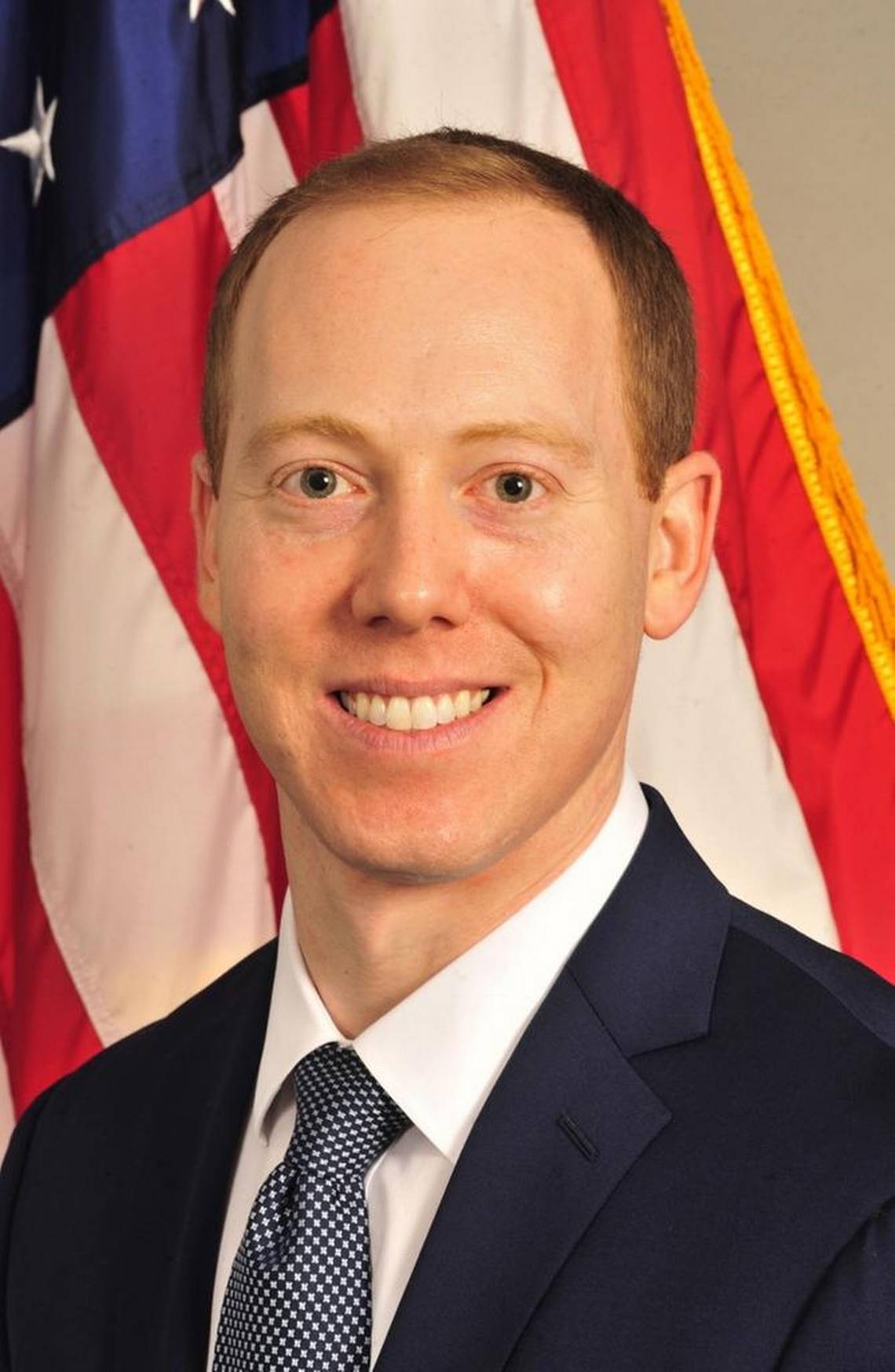
“We’ve tried to strike somewhat of a balance between making sure we are trying to continue to raise money for the campaign to get our message out, but also trying to be very respectful and aware of the challenging times that folks are going through,” he said.
Corson has drawn on current events to raise money, pointing to the state Senate’s refusal to expand Medicaid and the efforts of conservative Republicans to limit Gov. Laura Kelly’s ability to respond to the pandemic.
Corson said his campaign has focused on raising money from traditional political donors who either have the ability to give or are invested enough in the process to make a donation.
He said he’s run into occasions where potential donors might not give as much as they might have in another time, or they’re hesitant to donate because of the economic uncertainty.
“We really treaded cautiously around this,” Corson said.
“I have not had anybody say that they thought it was inappropriate that we were fundraising,” he said. “We were really worried about that at the beginning.”
The National Republican Congressional Committee last month urged its members to exercise caution in fundraising.
“Be sensitive that your donors may have suffered financial losses during this pandemic,” wrote NRCC chair Tom Emmer, a congressman from Minnesota.
Emmer said GOP members of Congress should still touch base with donors and see how they are handling the crisis.
“At some point if things continue to escalate, large gathering fundraisers, email solicitations and mail solicitations may need to be paused,” he wrote.
Republican political consultant Jared Suhn said donors still understand the importance of contributing to candidates.
“What has changed is how aggressive candidates are and how they approach the request for support,” he said.
“From a purely political perspective, the candidates who have quickly adapted to a changing environment and found ways to innovate and engage donors will clearly benefit,” he said.
Campaigns have taken different approaches to fundraising amid the health crisis after canceling in-person events to help control the spread of the virus.
There’s Senate President Susan Wagle’s fundraising email, which starts out talking about the threat of the coronavirus but uses it as a platform to criticize potential Democratic rival state Sen. Barbara Bollier and congressional Democrats.

“While campaigning is now different, it does not end,” Wagle’s fundraising email says. “Now is not the time to hold fundraising events. As a result, we are short of our fundraising goal for the quarter.
“We will get through this together. Please join me in praying for those afflicted, the healthcare workers on the frontlines taking care of people and for our leaders to act with wisdom and common sense to protect us.”
Then there’s state Sen. Bollier, who emphasized her career as a physician in one fundraising email, explaining that she canceled a “small gathering of grassroots supporters” that would leave a hole in the campaign’s budget.
“I know you appreciate just how hard this decision is. However, as a doctor, I take public health very seriously. That’s why we’re canceling this event and asking for your online support as we move forward,” the email said.
The Bollier campaign also sent out an email telling supporters how they could contribute to organizations that would help feed the less affluent, such as the Kansas Food Bank and Harvesters.
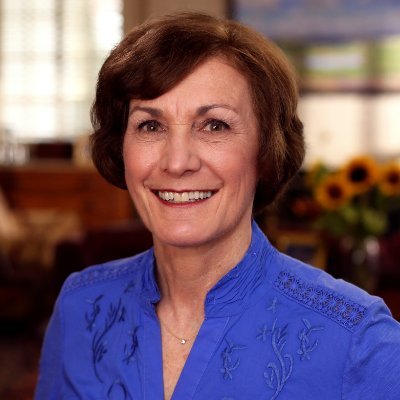
“Thanks for believing in our campaign to send a different kind of leader to Washington and for helping us take care of those in-need right now,” said the email, which did not include a request for a campaign donation.
Bollier’s spokeswoman, Alexandra De Luca, said the campaign is conscious of the social needs the pandemic presents, which is why the food bank email was sent.
“It’s clear right now its a hard time for a lot of people and we are aware of that,” De Luca said.
But she added, “We are running a race where we need the funds in order to be able to compete and compete in a way that we want to.”
In one Twitter post, Bollier, says, “Especially in times like these, we need people in Congress who look at facts first.
“I’d be the first woman physician ever elected to the U.S. Senate. If you can, please chip in to help me get there.”
Republican Congressman Roger Marshall’s U.S. Senate campaign sent out emails — with no requests for money — providing tips to voters for how they could avoid contracting COVID-19.
A physician, Marshall is referred to as “Doc” in the some of the emails, which also include links to the federal government’s website on the coronavirus.
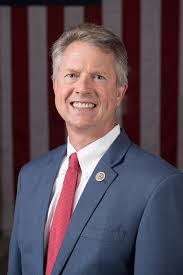
His campaign did send some emails with fundraising requests.
“The last few weeks have been very different for all of us,” said one Marshall fundraising email.
“The most important thing right now is for each of us to stay healthy and informed, and Doc is working around the clock to both of those ends,” the email states.
But the email notes how the congressman — and his record as a doctor — is under assault from special interest groups.
“We know this is a time when many of you can’t give, and we understand that,” the email said. “But if you can, will you chip in $25, or even just $5, to help Doc tell the truth about his record?” the email says.
Marshall campaign manager Eric Pahls said the focus has been getting COVID-19 resources out to people.
“What we want to make really clear to our supporters is that we know this economic downturn has impacted them and if they can’t give right now, we understand,” Pahls said.
“But if they can, this is a time where we need it,” he said.
Kobach, meanwhile, has been raising money off the idea of building a border wall as a way to keep disease out of the country.
Kobach sent out an email raising money that claimed more than “12,000 Chinese nationals snuck across our southern border into the United States last year.”
The email says they came into the country illegally with no health care screening.
“We must focus on what matters, and that means that in addition to the coronavirus relief measures already being taken, WE MUST COMPLETE THE BORDER WALL,” the email said.
“When this pandemic is in the rear-view mirror, we must ensure that our border is no longer wide open. Our national security and our health depend on it.”
Kobach said his fundraising is more issue-oriented, focusing on issues he embraces such as immigration, election security and judicial appointments.
He said the coronavirus has “illustrated a number of security gaps that need to be filled for our country,” including an open border.
“It is yet another issue where I feel like my ability to move the ball is worth pointing out,” he said.
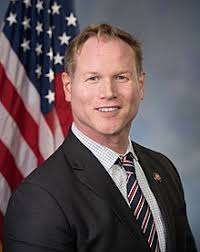
Over in the 2nd Congressional District, Republican incumbent Watkins has sent out fundraising emails alluding to the coronavirus while emphasizing the need to raise money.
“I’ve held out on asking much from you during this time — Kansans are hunkering down and we are all just trying to stay healthy and optimistic,” Watkins said in a fundraising email.
He stressed that the Federal Election Commission’s deadline for the first quarter was nearing, however.
“We can’t let our district look vulnerable at a time like this…but I also know how difficult it is to spare change at the moment,” the email said.
“I wouldn’t ask you to contribute if I didn’t think it was important. We are all doing our best to ride out this crisis together, but we need to keep looking toward the future as we do so. Help me stop the radical liberals from taking our district.”
Watkins campaign spokesman Bryan Piligra said the congressman “has certainly been focusing more on the physical and financial health of his constituents, and fighting the liberals’ agenda during this pandemic, than he has on fundraising.
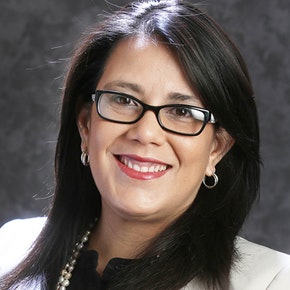
“That said, the campaign remains very strong.”
Topeka Mayor Michelle De La Isla, who is running as a Democrat in the 2nd Congressional District, has sent out an email explaining her efforts to contain the virus and why stay-at-home orders were important.
Former Kansas Gov. Kathleen Sebelius signed a fundraising email for the Topeka mayor’s congressional campaign, saying the candidate needed to raise $300,000 this quarter.
“As complicated as our lives have become trying to follow health guidance and keep our families and ourselves safe, think of how complicated it is to try and run for office in this unprecedented time,” Sebelius said in the email.
“Gatherings have been cancelled, and instead of meeting lots of constituents, candidates are told to stay home.
“The November election will still happen, but time is being lost to conduct an effective campaign.”





